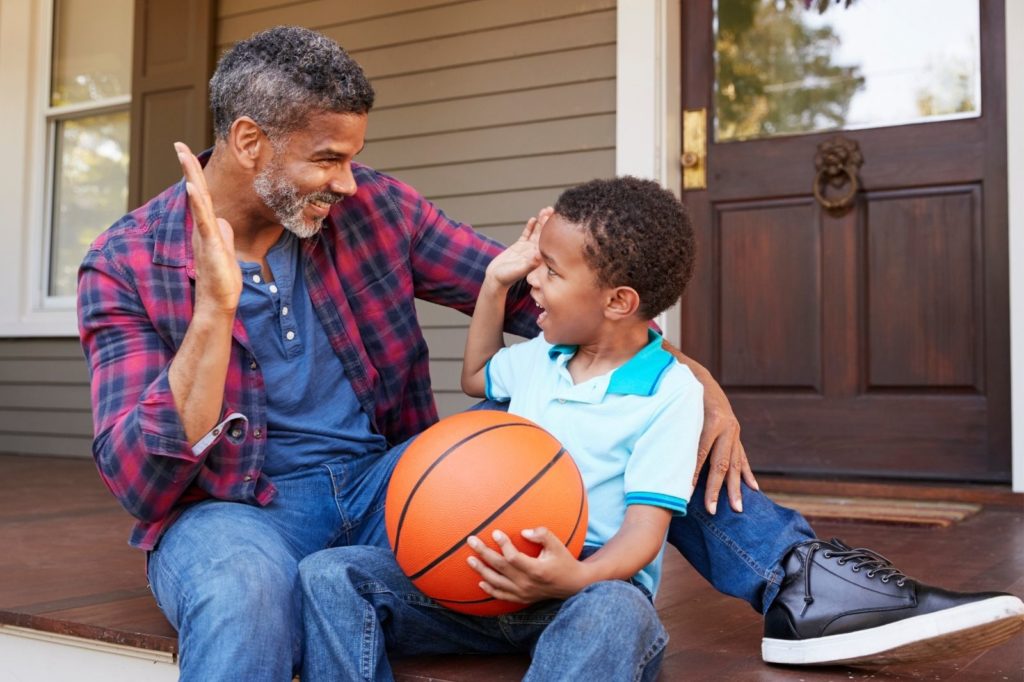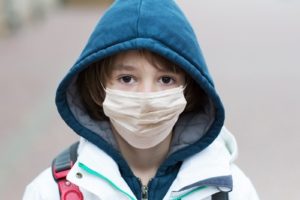As parents, we naturally want our kids to live full, happy and successful lives. Yet all children struggle with anxiety at some point. When it hits your child, it can be hard to know when and how to step in.
Normal levels of anxiety can be a good thing. For example, being anxious about an upcoming test or assignment can motivate a student to study harder. In some children, though, it becomes excessive and leads to clinical anxiety. That’s when it can interfere with normal life and cause ongoing problems.
“Anxiety is different for everyone,” explains Dr. Joshua Essery, one of the licensed psychologists at Clarity Child Guidance Center. “We all have a unique biological makeup that contributes to our temperament, and that can influence how we handle anxiety.”
Dr. Essery notes that a child’s levels of anxiety can stem from a number of factors:
- Some kids are just more temperamentally anxious and nervous than others.
- Some kids may have specific stressors going on in their lives, either in the past or the present, that exceed their abilities to cope with that stress.
- Traumatic events like bullying, abuse or poor social experiences can make a child feel a lack of safety that leads to anxiety.
How does anxiety impact a child’s life?
Most of us tend to withdraw or isolate ourselves when things get stressful. It helps us deal with the things that make us uncomfortable. In order to develop into healthy, functioning adults, children must learn to face with challenges that are uncomfortable. If instead they withdraw due to anxiety, it can stunt their emotional, psychological, social and academic growth, with life-long impacts.
“A child who may be anxious and withdrawing is not going to engage in tasks that lead that child to a sense of accomplishment or praise that, over time, are going to lead to a healthy sense of self-esteem and confidence to take further actions,” notes Dr. Essery.
“[Withdrawing] doesn’t help that child in building social skills and being able to tolerate the natural anxiety that comes from human relationships,” he continues.
Signs of anxiety in children
Since all children are unique, it can be a challenge to spot clinical anxiety. That’s why it’s important for parents to pay attention to any behavioral or personality changes, like:
- Avoiding doing things that they used to enjoy, or that are a part of their life.
- Being more withdrawn and uncommunicative than usual.
- Being more irritable or tearful. Anger can often be a mask for being anxious or afraid.
- Having a hard time being alone.
- A lack of self-care.
Adults often have a hard time remembering what it’s like to be inside the mind of a child. Your child might not have the words to express what’s going on. They might not even be aware that there’s a problem they need help with. This is why staying tuned into the clues above is so important.
How can parents help an anxious child?
There are a number of things you can do to help your child cope with their anxiety:
- Communicate that you care about your child’s feelings.
- Check in to find out if there are any outside experiences going on, like bullying, for example.
- Offer your help. Ask your child how you can help them cope with their anxiety.
- Don’t allow them to back away from overcoming their challenges. Show your child that you have faith in them and their ability to face and overcome their fears.
When should you get professional help?
If your child’s anxiety is having an impact on their daily tasks and activities, consider getting professional mental health help. These behaviors could indicate clinical anxiety that could benefit from outside help:
- If your child can’t attend school or other activities due to anxiety.
- If your child can’t focus or concentrate.
- If these feelings persists over a week or more, and aren’t tied to a specific fear (like a big test coming up).
- If your child is so anxious that they feel hopeless or have suicidal thoughts.
Beyond helping with the immediate clinical anxiety, mental health treatment can help improve self-esteem and communication skills that can last a lifetime.
If you would like to hear the entire interview with Dr. Joshua Essery, please watch the video below.
In case of a medical emergency, please call 911. For a child’s mental health emergency (ages 3 to 17), call Clarity Child Guidance Center at 210-582-6412. Our crisis service department accepts walk-ins 24/7. You can find directions to our campus here. Please do not hesitate to reach out to us. We are here to help!










